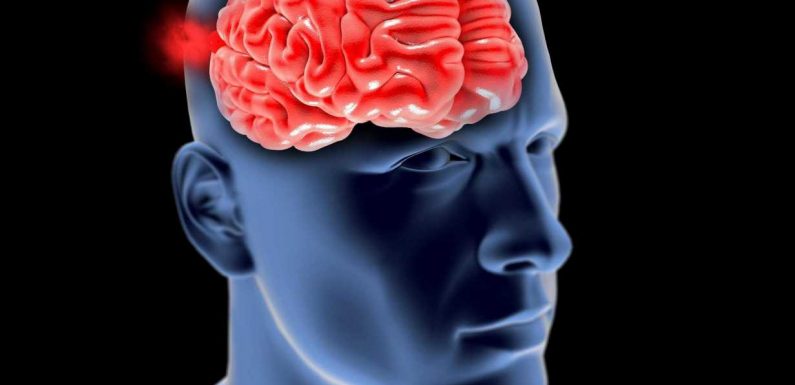
DO you know the immediate symptoms or signs of a brain aneurysm if it was to happen to you?
It can lead to a fatal brain bleed if the medical condition is left untreated. Here is everything we know.
What is a brain aneurysm?
A brain aneurysm occurs when there is a bulge in a weakened blood vessel.
Usually, brain aneurysms only cause noticeable symptoms if they burst.
This burst leads to serious issues and is known as a subarachnoid haemorrhage (or brain haemorrhage).
If the aneurysm ruptures, bleeding can cause extensive brain damage – with three in five people dying within two weeks of suffering this.
What are the symptoms of a ruptured brain aneurysm?
According to the NHS, signs of a brain haemorrhage include:
- A sudden excruciating headache (similar to a sudden “bang” on the head)
- Stiff neck
- Sickness and vomiting
- Pain when looking at light
Unruptured brain aneurysms can occasionally cause symptoms too.
Signs of these can include:
- Loss of vision or double vision
- Pain above or around the eye
- Weakness or numbness on one side of the face
- Headaches
- Impaired balance
- Concentration issues or problems with short-term memory
What can cause a brain aneurysm?
The exact reason why blood vessel walls weaken is still unclear, but certain risk factors have been identified.
These include:
- Smoking
- High blood pressure
- A history of brain aneurysms in your family
While brain aneurysms can develop in anyone at any age, they are more common in people over the age of 40 and women tend to be affected more than men.
The best way to reduce the risk of an aneurysm developing and possibly bursting is to avoid activities that could damage blood vessels.
Activities include:
- Eating a diet high in fat
- Not controlling blood pressure
- Being overweight or obese
The NHS website states that if you suspect someone has had a brain haemorrhage, which could be caused by a ruptured aneurysm, you should call 999 immediately and ask for an ambulance.
Those experiencing symptoms of an unruptured brain aneurysm should contact their GP as soon as possible – it's important to get it checked in case treatment is needed.
In 2001 Sharon Stone was told by doctors she had a "five per cent chance" of living and had to "re-learn everything" after suffering a brain haemorrhage.
Did Dr Dre suffer a brain aneurysm?
Veteran rapper and record producer Dr Dre said he was admitted to hospital after reports claimed that he suffered a brain aneurysm and was in intensive care.
TMZ reported earlier that Dre suffered the aneurysm on Monday and was rushed by ambulance to the Cedars-Sinai Medical Center in Los Angeles.
In a post on Instagram, Dre said: "Thanks to my family, friends and fans for their interest and well wishes.
"I'm doing great and getting excellent care from my medical team.
"I will be out of the hospital and back home soon. Shout out to all the great medical professionals at Cedars."
TMZ said the 55-year-old music mogul was stable and lucid, but doctors did not know what caused the bleeding and needed to some tests.
Did Mythbusters' Grant Imahara die from a brain aneurysm?
Yes, the former host of the popular science show Mythbusters died of a brain aneurysm.
Grant Imahara, who shot to fame for his technical expertise in creating robots on the hit series Mythbusters, died suddenly of a brain aneurysm on July 13.
A Discovery rep said in a statement: "We are heartbroken to hear this sad news about Grant.
"He was an important part of our Discovery family and a really wonderful man.
"Our thoughts and prayers go out to his family."
The brilliant roboticist, who studied electrical engineering at the University of Southern California, joined the "The Build Team" as Scottie Chapman's replacement in the third series in 2005 and remained until 2014.
Source: Read Full Article



